Mapped and profiled: The major operators who own South Australia’s biggest hotels.
Local developers and Asian investors dominate ownership of SA’s largest hotels. Explore our map of more than 50 properties to see who the major landlords are.
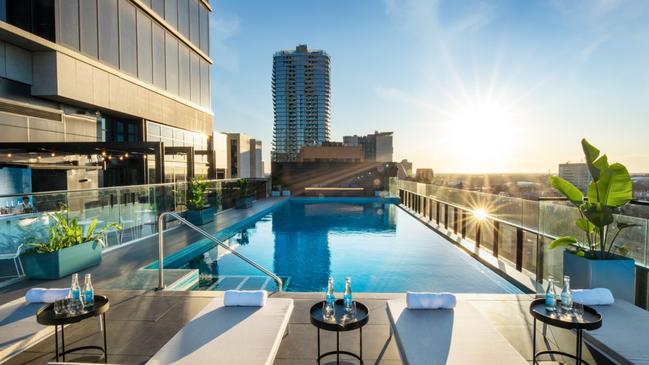
Business
Don't miss out on the headlines from Business. Followed categories will be added to My News.
Local developers are forging ahead with new hotel projects in the midst of the Covid-19 crisis, and extending their dominance of ownership of the state’s largest hotel properties.
Analysis undertaken by The Advertiser and international property group JLL reveals the landlords who control South Australia’s largest hotel properties as they tackle a pandemic which has brought international travel to an 18-month standstill.
The research, which includes ownership data for more than 50 of the state’s largest hotels, shows that the state’s very largest hotel properties, including the Hilton, InterContinental and Stamford Plaza, are owned by South East Asian groups out of Malaysia, Thailand and Singapore.
But local South Australian investors are emerging as the state’s dominant landlords, and are also the most active developers of new hotels.
Adelaide-based Palumbo is nearing completion of the Sofitel on Currie St, while Ginos Group, GuavaLime and Greaton recently commenced construction of the Vibe, TRYP and Marriott hotels in the CBD.
JLL Hotels & Hospitality Group Australasia managing director Peter Harper said while overseas groups controlled many of the largest hotels in Adelaide, the current wave of new developments was being driven by groups either based in Adelaide or with significant investments in the city.
“These parties have seen first-hand the ongoing transformation of South Australia’s economy and the positive impacts that this was having on the growth of hotel room night demand drivers pre-Covid,” he said.
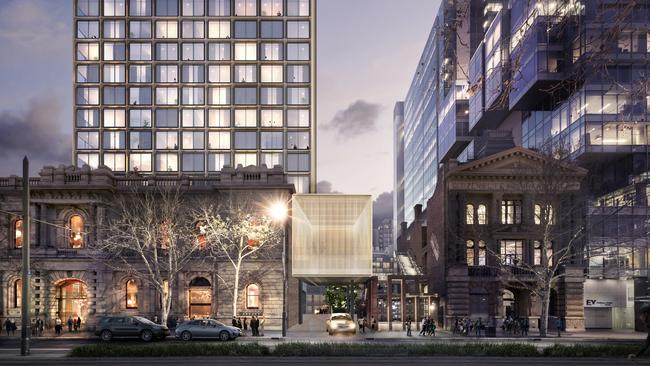
“Not only had midweek corporate demand strengthened, but Adelaide became a much more sought after leisure tourism destination as the city itself offers so much and also acts as a launch pad to the state’s regional attractions.”
Mr Harper said that by the time hotels currently under construction in Adelaide were completed in 2023, at least eight new hotels would have opened their doors in the city since the onset of Covid-19 early last year.
“In the past year or so we’ve seen the opening of several world class hotels in Adelaide including the incredible Oval Hotel at Adelaide Oval, the luxury Eos at SkyCity and Australia’s first Indigo Hotel. Up in the Hills, Sequoia has quickly established itself as one of Australia’s finest lodges,” he said.
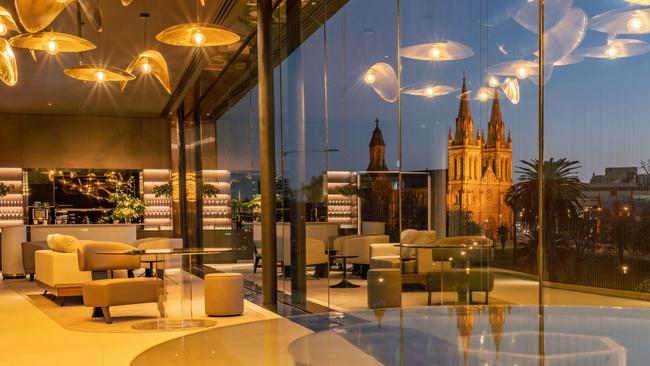
“Once all complete, the market will have absorbed eight new hotels in the CBD alone, for a total increase in rooms of 1610 or 30 per cent.
“This will take a while to work through once market conditions settle nationally, however the best located and newest hotels are expected to capture their fair market share quickly with older and secondary hotels to lag.”
Local hotel investor David Horbelt last month opened his luxury Sequoia Lodge suites on the grounds of Mount Lofty House after more than a year of delays due to Covid-19.
While he is confident the tourism industry will bounce back strongly once border restrictions ease, he said it would be some time before the market was able to absorb the influx of new accommodation entering the market.
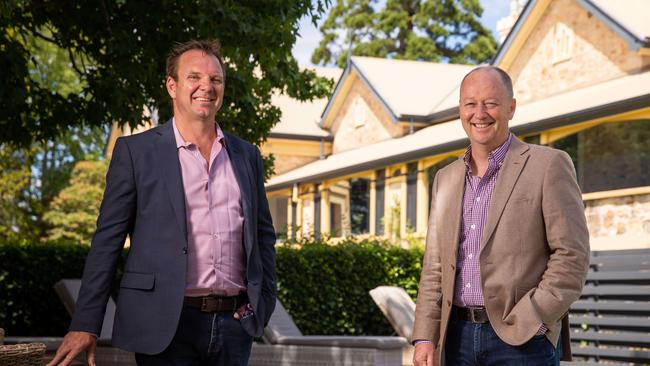
“We have already experienced how quickly SA bounces back when interstate travel restrictions are lifted - it will happen again once we hit the vaccination target and states re-open their borders,” he said.
“But Adelaide is currently oversupplied and requires demand triggers to allow for the recent hotels which have opened, the ones soon to open and the ones which will ultimately return from being medi-hotels.
“With the battering the accommodation hospitality sector has had, caution is now front of mind.”
In addition to Mount Lofty House and Sequoia Lodge, Mr Horbelt owns Rydges South Park in the CBD, Whalers Inn at Victor Harbor and several hotels in Queensland.
Other prominent owners include John Culshaw, who owns the Majestic Roof Garden Hotel on Frome St and the new Majestic M Suites in North Adelaide, and Melbourne-based Hines Property, which developed and owns the Ibis and Pullman hotels near Hindmarsh Square.
Singapore’s Chip Eng Seng took over the Grosvenor Hotel in 2017 and has plans to build a new Hyatt hotel on Pirie St, while Elanor Investors acquired the Mayfair, Adabco Boutique and Barossa Weintal hotels in 2019.
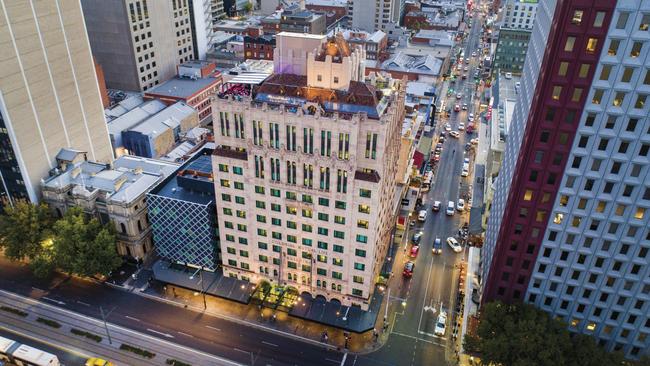
The new Tom’s Court and Peppers hotels were listed for sale by the Karidis and Mattioli families earlier this year.
Hines Property managing director James Hines said ongoing border closures to NSW and Victoria remained the biggest concern for local hotel owners and operators.
“While Adelaide has experienced shorter and fewer lockdowns than many of the other capital cities across the country, Melbourne and Sydney travellers are the largest demand driver for our hotels,” he said.
“The state government’s accommodation vouchers scheme has been very successful and assisted hotels through some of the worst times of the pandemic, however the more recent border closures to NSW and Victoria from mid year have battered the industry with many hotel owners trying to survive on super low occupancies for some months now.
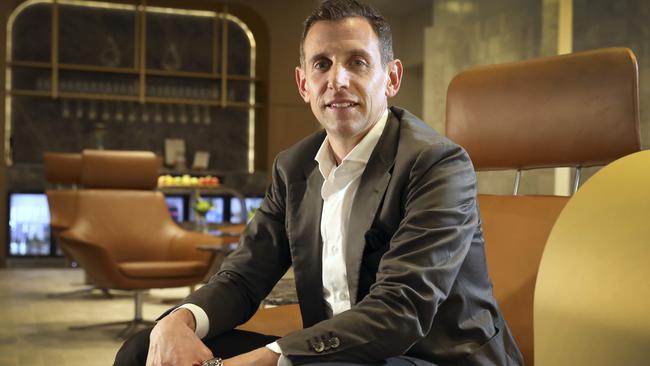
“We need to be able to welcome guests from Melbourne and Sydney before we see any form of meaningful recovery in the market.
“I am very optimistic that once domestic borders re-open there will be a very rapid recovery in domestic travel. I expect hotels will bounce back to pre-pandemic levels in a matter of months.”
Property Council SA executive director Daniel Gannon said while the state’s tourism sector had faced unprecedented challenges over the past 18 months, there had been increase in transactions, development, refurbishments and investment in hotel properties.
“It’s hard to drive or walk around the CBD without seeing another household brand adorning a new hotel built and developed by locals,” he said.
“That said, there are also plenty of examples of hotels under duress given the ongoing pandemic and associated health restrictions.
“For this reason, we encourage South Australians to take full advantage of the state government’s Great State Vouchers, FOMO Fridays initiative, and go to town to support businesses in the CBD.”
More Coverage
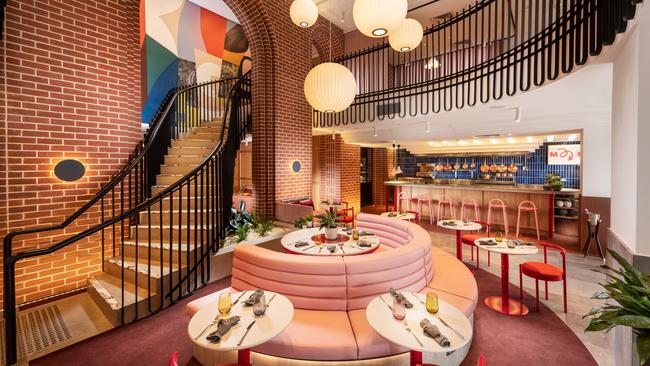
Originally published as Mapped and profiled: The major operators who own South Australia’s biggest hotels.





